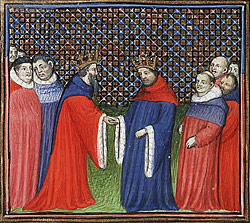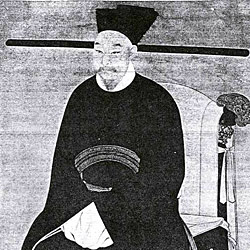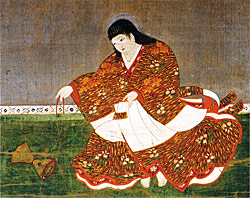
Unit 1: Redefining World Society and Culture
Lesson D: Life and Times in the Pre-Modern World
Activity 2: Political, Economic, and Religious Aspects of Civilization
Throughout most of world history, a select few men controlled most of the world's governments. Kings, emperors, and princes made most of the decisions. They normally gained power through warfare and passed control of their governments to their sons. There were brief periods of democracy, such as in ancient Athens and the Roman Republic, but these systems did not last.
While a select few men were controlling the governments, the majority of the world's population tried to provide for the daily survival of their families through farming. Sometimes they owned land, but normally they worked on land owned by others. A small number of people were merchants or practiced some other trade, but economic survival was challenging.
Most of the world's populations turned to religion as a form of comfort and assurance that their lives had meaning. A majority of the regions were dominated by one religion and most of the people practiced that religion. Religion played a major role in how the region was governed.

David Bruce, King of Scotland, Acknowledges Edward III as His Feudal Lord [1]

Emperor Guangzong, the 12th Emperor of Song China [2]

Emperor Antoku, the 81st emperor of Japan [3]
Page Notes:
[1] Source: This image from http://commons.wikimedia.org/wiki/File:David_Bruce,_king_of_Scotland,_acknowledges_Edward_III _as_his_feudal_lord.jpg is in the public domain because its copyright has expired.
[2] Source: This image from http://en.wikipedia.org/wiki/File:Guangzong.jpg is in the public domain because its copyright has expired.
[3] Source: This image from http://en.wikipedia.org/wiki/File:Emperor_Antoku.jpg is in the public domain because its copyright has expired.

